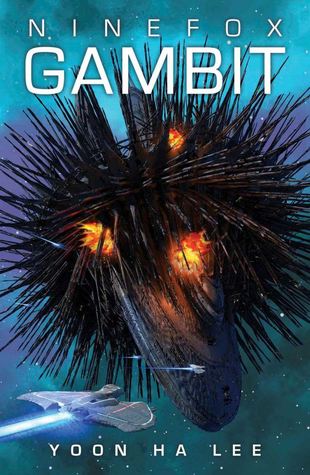Given a second chance by Kel Command, disgraced captain Kel Cheris must ally with the undead tactian Shuos Jedao to recapture the formidable Fortress of Scattered Needles, a star fortress recently captured by the heretics. If the fortress isn’t retaken soon, the entire hexarchate might be next. Shuos Jedao may have never lost a battle, but he is a traitor who massacred his own army to win a war in his first life. The worst part is, Jedao’s consciousness lives inside Cheris’s body with her, so she must maneuver in a battle within as well as the battle outside.
Ninefox Gambit is a uniquely challenging novel, with a several intriguing elements. The dynamics between Cheris and Jedao’s consciousnes are by far the most interesting aspect of the story, with Cheris using Jedao’s experience in battle, while attempting to maintain a distance from his calculating madness. Modern society (and reality) as Cheris knows it is based upon consensual mathematical order that requires mental conformity from its citizens. But if heresies arise that add a day to the week or change the base number, Cheris’ armies’ weapons, themselves built upon a certain mathematical order, will start to break down. Add in weapons of light and fungus and memory, and there are some really imaginative new ideas.
Unfortunately, there are just too many unknowns. As new books go, it is currently fashionable to drop the reader into a complex new world without much explanation, but Ninefox Gambit goes too far in that direction. Exposition is a luxury. I still do not understand the politics of the war around which this entire book centers, the motivation to uproot the current calendrical system, why mathematics requires belief, or what anything or anyone looks like.
Recommended for fans of space opera fantasy who enjoy a challenge, who don’t mind using their own imagination to fill in the details!
“The storm fell in sheets of undulating light, snake-sharp and acrid. Cheris had Dineng send for another Sparrow to verify that the light was fatal. The Sparrow dodged a ribbon of light too late and was transformed into a mass of parallel slices and metal shrieks. It fell unmoving to the ground, where the light rearranged it again and again until it was nothing but an accretion of truncated cubes.”
